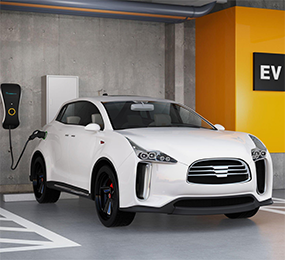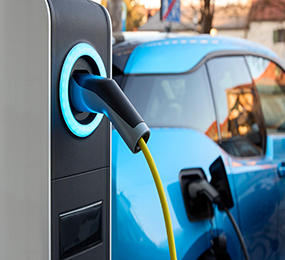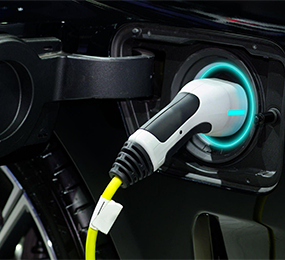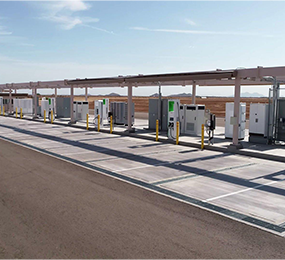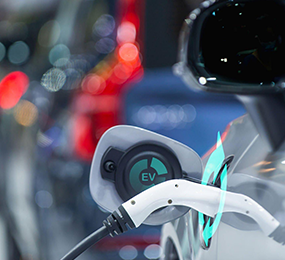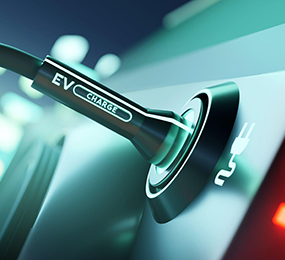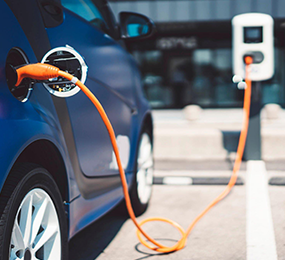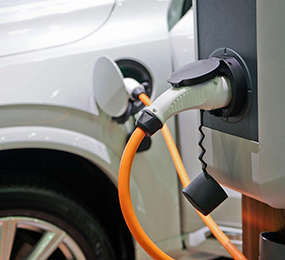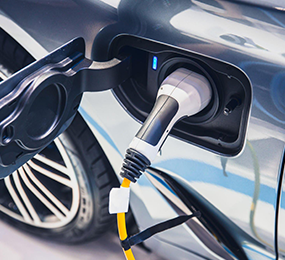Advancing the Electrification of Commercial Fleets
The electrification of transportation, particularly for commercial fleets, is still in its early stages, as is the associated spread of EV charging infrastructure. The fundamental components of the EV value chain are straightforward. Manufacturing of batteries and Fleets, retail, charging, and after-sales services are among them.
However, a diverse range of companies are vying for market share along this value chain, including utilities, oil and gas companies, technology companies, charging site owners, infrastructure operators, service providers, vehicle users, movement providers, and financial services and leasing firms.
Fleets and EV batteries
Batteries are becoming more economical to install as technology advances and economies of scale increase. Meanwhile, corporations looking at how to acquire an EV fleet could find it more appealing to lease than buy as the economics improve in the short future. In addition, as a novel business model, a few EV makers and original equipment manufacturers (OEMs) are already giving the opportunity to purchase a car and separately lease the battery — which normally has to be changed after 7 to 10 years.
These lease contracts are typically coupled with a guarantee and battery replacement agreements, with the ultimate purpose of making the costliest part in an EV today more affordable to purchase up front. There is additional commercial potential for recycling and reusing EV batteries. After removing a standard EV battery, around 50% to 70% of the generation capacity remains, which might be reused for purposes such as battery backup, renewable-energy storage, and grid stability. After a battery's second-life activities are completed, the final stage is recycling.
Stations for charging
Utilities, oil companies, network operators, software developers, and others are entering the industry in order to get an early-mover advantage. Industrial and commercial charging infrastructure requirements vary substantially depending on area and utility financial market, giving a potential for utilities to assist fleet operators in evaluating and developing charging station plans. Utilities are also in a great position to fund charging infrastructure because to their accessibility to relatively inexpensive money, and with the correct emphasis, they can compete for market share with the other incumbents and third - party. Installation services, rather than operations and maintenance, will be the dominant income generator in this industry.
EV charging stations, on the other hand, have negligible maintenance needs. Because the majority of charging network providers provide maintenance services in-house, the possibility for third parties is restricted for the time being. However, the market for charging infrastructure maintenance contracts may grow over time as the numbers of charging stations in service grows.
Sources of distributed energy
Fleet operators might profit from using distributed energy resource (DER) technology to charge their cars, such as photovoltaic panel and inverters, fuel cells, energy storage, and others.
The high prices of DER technology are an apparent obstacle for fleet charging, but they provide higher scalability, dependability, and flexibility when compared to centralized charging. Engineering, procurement, and construction options for the installation of distributed resources of energy to enable fleet electrification are available.
Analytics and software
Fleet operators will rapidly opt for software that allows them to create and operate their own infrastructure of smart electric vehicle charging stations. Real-time tracking of charging stations, problem reporting, electric pricing management, priority charging, customer reporting, and mobile app access are some of the important capabilities. Furthermore, new benchmarking options such as vehicle usage (on/off hours), driver behavior, and cost analytics will make fleet owners' lives easier.
Understanding the advantages and disadvantages
Today's EVs are cutting-edge automobiles that equal or even outperform their standard gasoline and diesel rivals. These cars offer max torque and precise acceleration from a complete stop, as well as more quieter operation than conventional automobiles. However, certain MD and HD cars have a limited top speed and driving range.
There are several reasons for fleet operators to pursue electrification.
1. Financial
• Resilience to variations in fuel prices
• Beneficial government subsidies and refunds
• Potentially reduced utility company charges during non-peak-hour pricing
2. Operating
• Lower operational and maintenance expenses
• Less crew fatigue owing to fewer gear changes and clutch movements
• Increased work hours for teams doing non-emergency work in neighborhoods with noise limitations
• Increased overall operational safety
3. Environmental
• Adherence to environmental rules and internal greenhouse gas objectives
• Promotion of fuel variety
• Possibility of positive outcomes by using environmentally friendly solutions
There are several hurdles to building a successful electric fleet.
1. Financial
• Higher initial purchase price
• Constant need to understand changes in government tax incentives, rebates, and more
• Charge optimization is required to match favorable electricity cost timing.
2. Operational
• Driving range constraints
• Additional charging planning requirements
• Charging infrastructure compatibility
• Impact of extreme weather/temperatures
• Operator adoption and the development of new skill sets
• Rapid changes in technology (hardware/software)
3. Infrastructure
• Limited and unequal distribution of charging stations across states
• Market constraints on vehicle/spares supply
• Limited operations and maintenance services
• Potential improvement of utility circuit infrastructure to support increased load
Visit our website to know more: https://bit.ly/3W0umUp
For more information and group participation, contact us: [email protected]
Leadvent Group - Industry Leading Events for Business Leaders!


